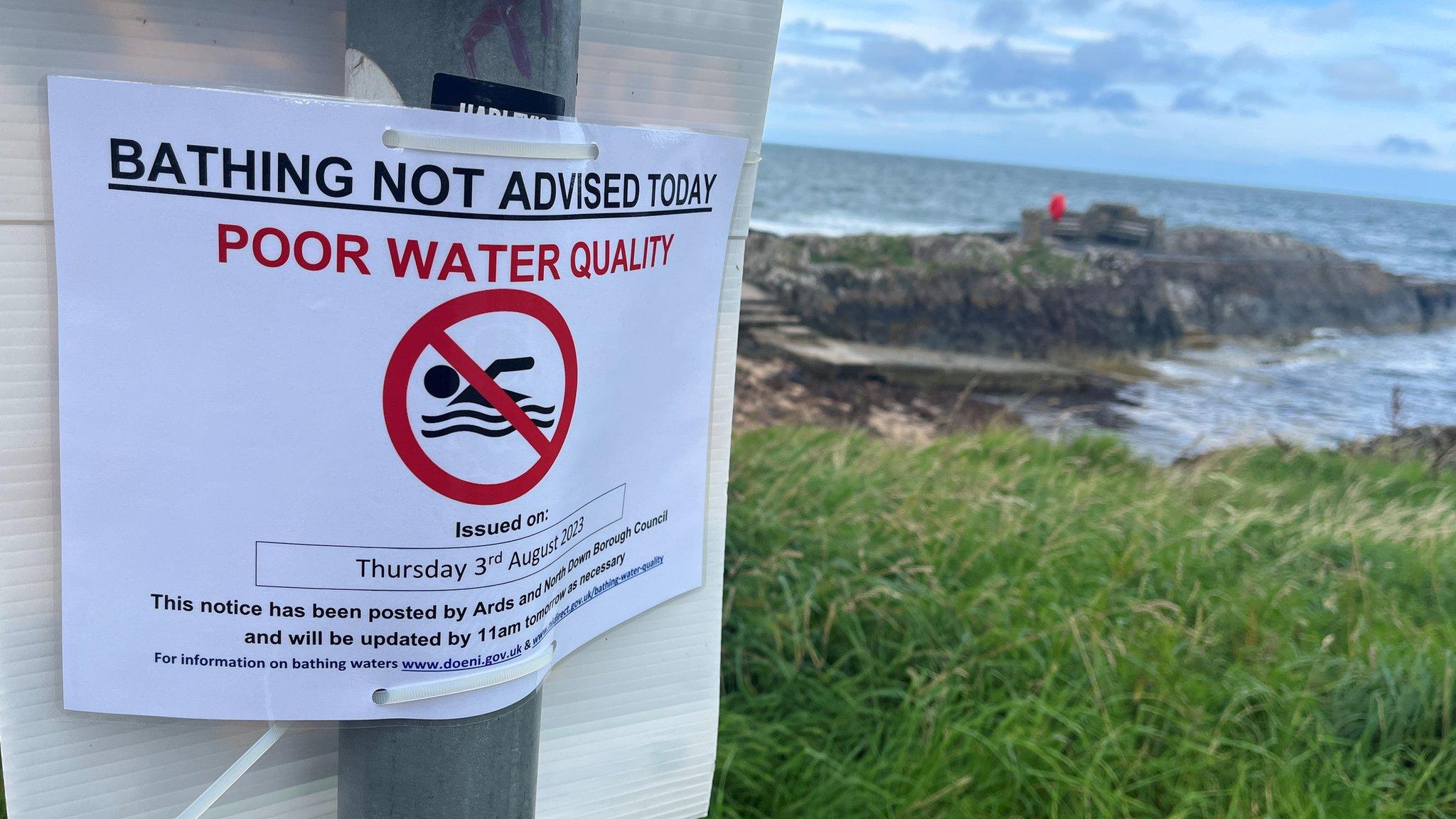Sewage bacteria above legal limits at NI swimming spots
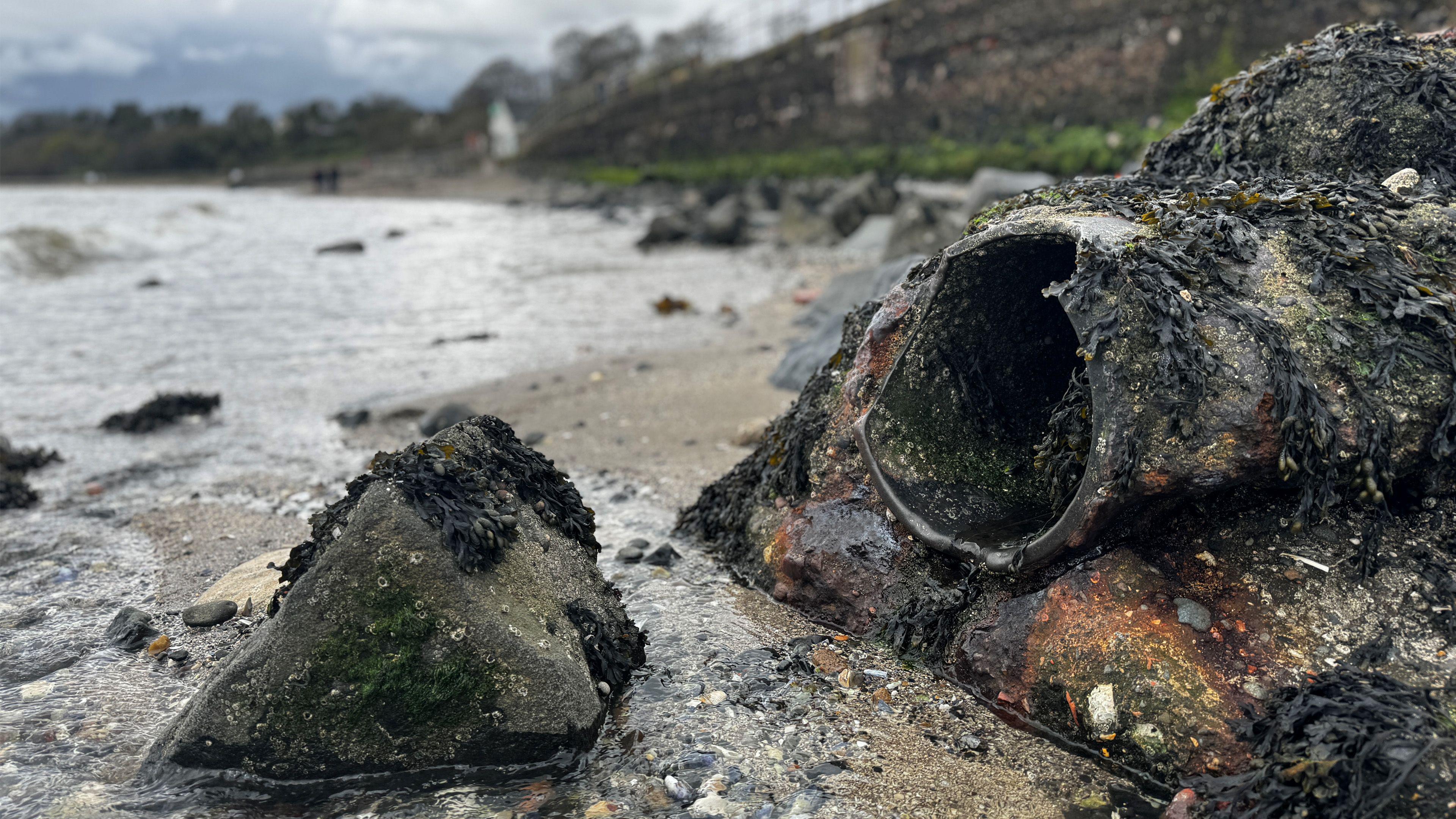
Northern Ireland Water has blamed historic underfunding of its sewage network as the root cause of the spills
- Published
Raw sewage spills have pushed levels of harmful bacteria in Belfast Lough beyond legal limits, a BBC Spotlight investigation has found.
Expert water sampling found levels of bacteria at some popular swimming spots were more than three times higher than permitted for bathing waters.
Northern Ireland Water has admitted breaching the law hundreds of times each year by releasing untreated sewage into the lough.
The company has pointed to decades of underfunding in its sewage network by the Department for Infrastructure (DfI) as the root cause of the spills.
The department said the minister, John O'Dowd, acknowledged the significant financial pressures NI Water was under, while also noting that the company already received almost half of his department’s annual available budget.
It added that the minister said the company could not approach these issues with a blanket response that finances were always to blame.
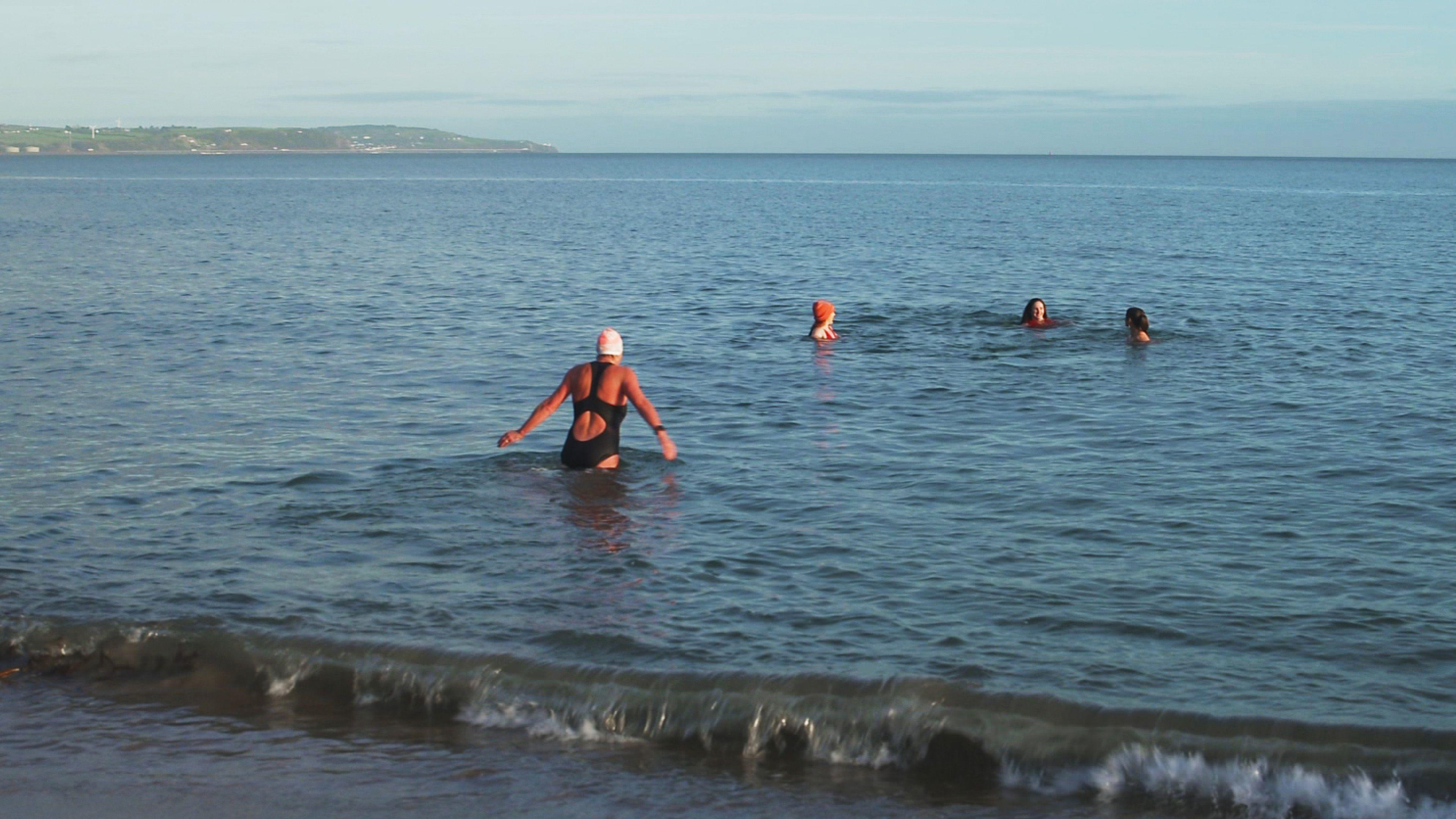
Bathing water quality is not monitored year round in Northern Ireland
Helen’s Bay is one of the most popular and picturesque beaches on Belfast Lough, busy all year round with swimmers, paddle-boarders and surfers.
Independent expert testing carried out on behalf of the programme at the beach last week found levels of potentially harmful bacteria, well in excess of legal limits for bathing water.
Other popular swimming spots around Belfast Lough told the same story – every single sample had unsafe levels of a bacteria linked to sewage pollution.
The raw sewage spilling from NI Water sites could be putting swimmers at risk.
The company said historic underinvestment meant the sewage network was unable to cope with demands placed on it.
Samples from Ballyholme, Seapark and Carrickfergus’ Fisherman’s Quay also revealed levels of E. coli which were unsafe for swimmers.
According to the NHS, external, E.coli symptoms include diarrhoea, stomach cramps and occasionally fever. About half of people with the infection will have bloody diarrhoea.
The Department for Agriculture, Environment and Rural Affairs (Daera) advises that no-one should swim within 48 hours of heavy rainfall.
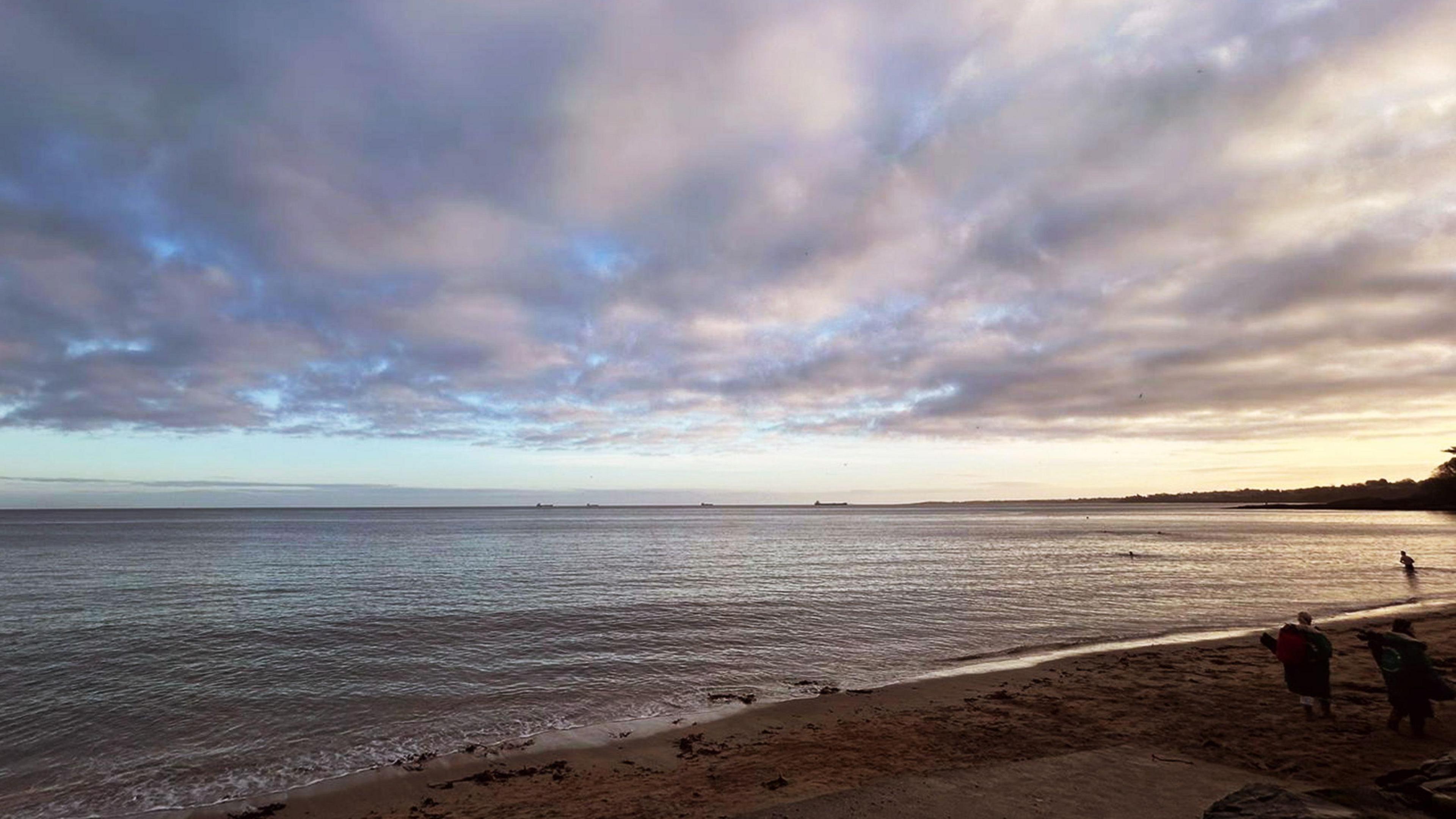
Helen's Bay beach in County Down is a popular bathing spot
'We shouldn't have to swim in sewage'
Helen’s Baywatch is a swimming group on Belfast Lough. Its members have been swimming from the County Down beach for years.
"It's a real national treasure, just a few miles from Belfast," Alicia Peyrano told the BBC.
"We do this every day, all year. It kind of brings us together as a community, coping through ups and downs.
"We've even had dolphins come in all the way up here, which is really rare. It's amazing.”
At this beach, more common than dolphins, is something much less beautiful - raw sewage being spilled by NI Water.
"There's a water treatment works just round the corner," said Gillian Armstrong.
"I've been down here swimming one day, beautiful, clear blue water, but a literal stream of brown coming past."
Helen Armstrong, a member of Surfers Against Sewage, put it more succinctly.
"You can see the visible brown trails whenever there has been a discharge," she said.
"We shouldn’t be swimming in shit."
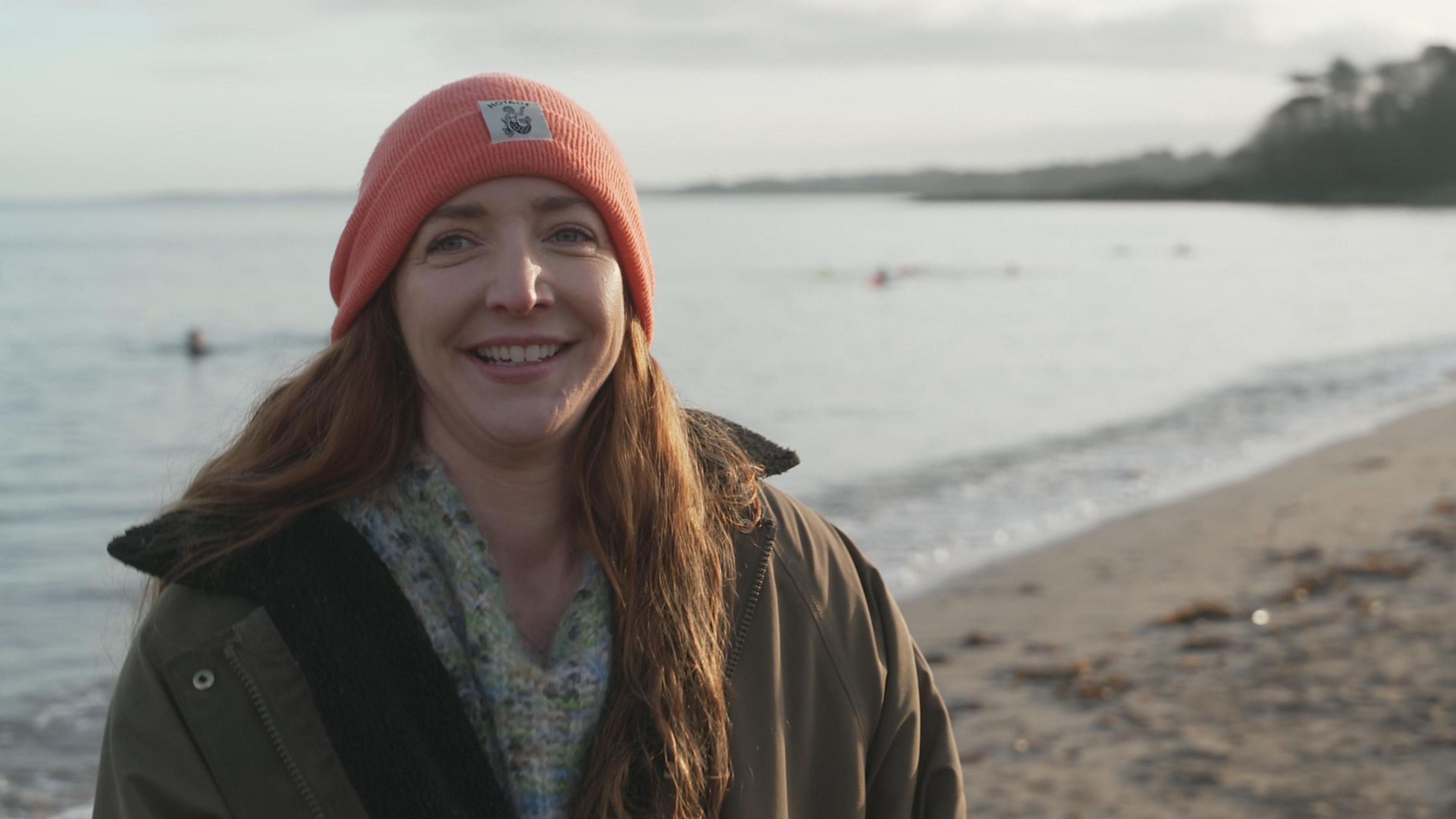
Helen Armstrong regularly swims at Helen's Bay beach in County Down
These sewage spills come from Northern Ireland Water’s combined storm overflows.
Those are thousands of sites across the country which should only operate in exceptional circumstances, like extreme weather events.
This "dry-spilling" is highly polluting and occurs when storm overflows spill raw sewage without any dilution from rainfall.
In England, companies that have been caught dry-spilling are currently facing criminal investigations.
Spotlight’s investigation has revealed NI Water is spilling sewage more than is legally allowed, including on dry days.
Helen has seen this first hand.
"I would generally avoid swimming after heavy rainfall," she said.
"Even on good sunny days I've been swimming and a sanitary pad has drifted past me. Not ideal."
NI Water said it took dry-spill events very seriously, monitoring any alerts that occur across its network and reacting to those.
It added these may be caused by blockages, or dry-spill alerts may be triggered by faulty equipment.
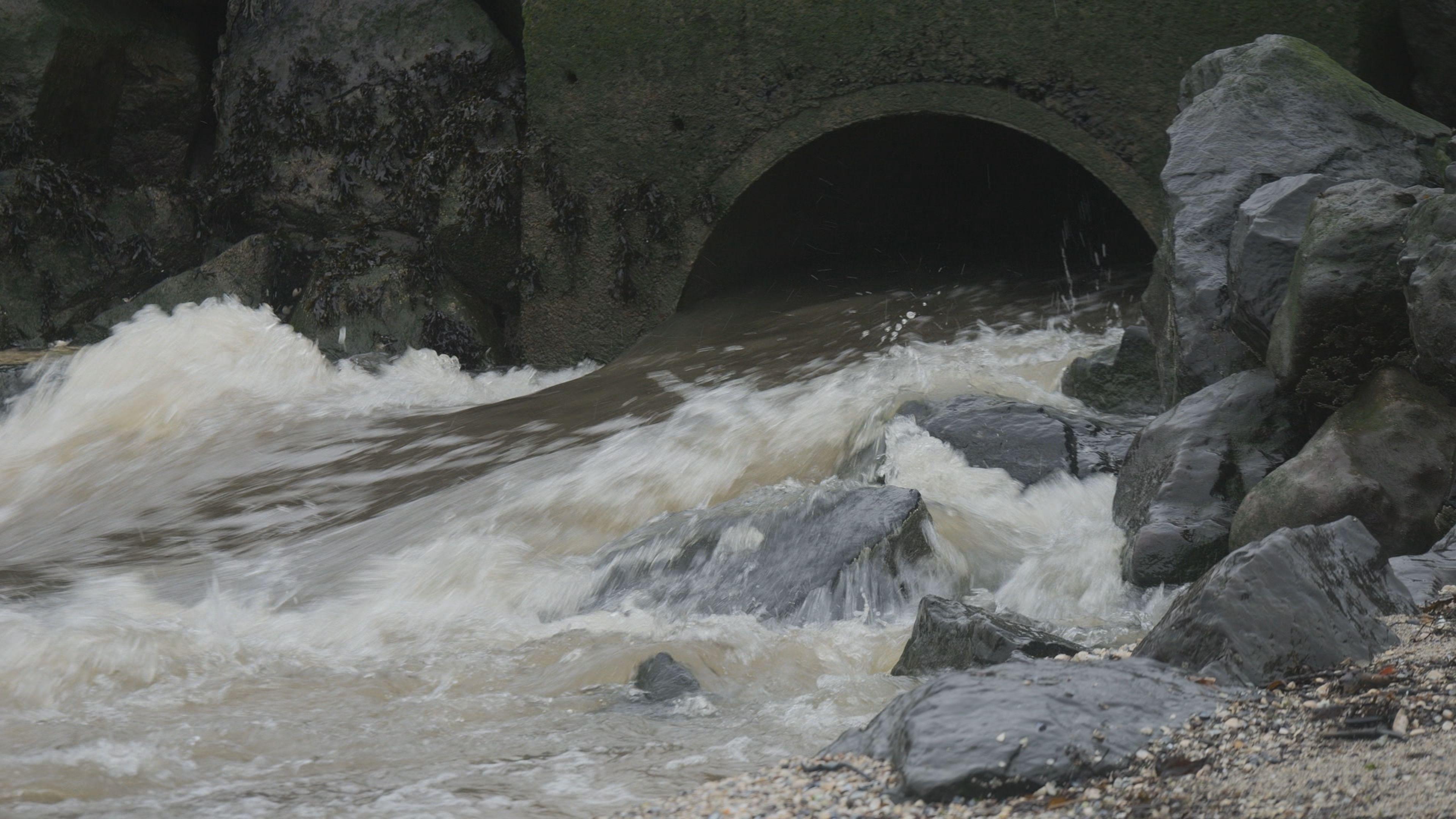
Storm overflows should only operate in exceptional circumstances
Why is the water designated as excellent?
Bathing water designations in Northern Ireland are based on the Daera water sampling.
It is only carried out during the official bathing season, from June to September.
Wild swimmers famously head into the water all year round – no matter how cold it gets.
Many of the most popular wild swims happen on Christmas or Boxing Day.
The Office of Environmental Protection recently criticised the department’s approach to testing.
It called for a year-round bathing season to reflect how the beaches are actually used.
Daera said it was already considering this expansion and is currently gathering information to help to shape future policy.
The testing conducted for Spotlight found levels of bacteria at beyond legal limits.
The department will not start its testing programme for another six months.
Gillian said that was of little comfort to swimmers using the water today.
“It means you can't make an informed choice as to whether or not it's a good time to come for a swim," she said.
"It's not just us. All of our kids swim here. Older people swim here, there's vulnerable people here as well.
"It's a disgrace."
Spotlight: The Sewage Scandal
Patrick Fee investigates the government-owned company illegally discharging raw sewage into rivers, lakes and seas.
Watch now on the iPlayer or on Tuesday 03 December on BBC One Northern Ireland at 22.40
- Published28 November 2024
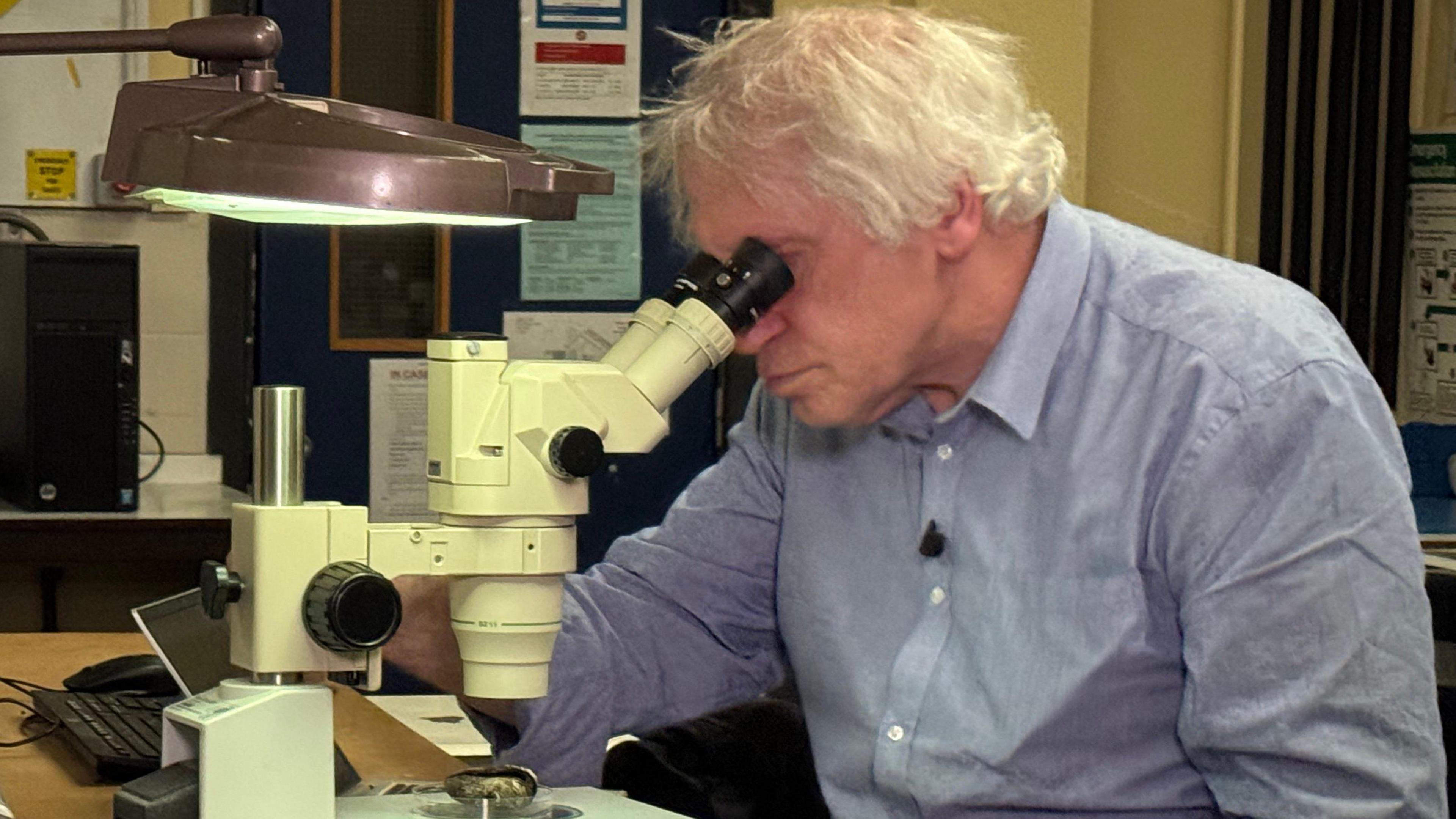
- Published25 November 2024

- Published3 August 2023
